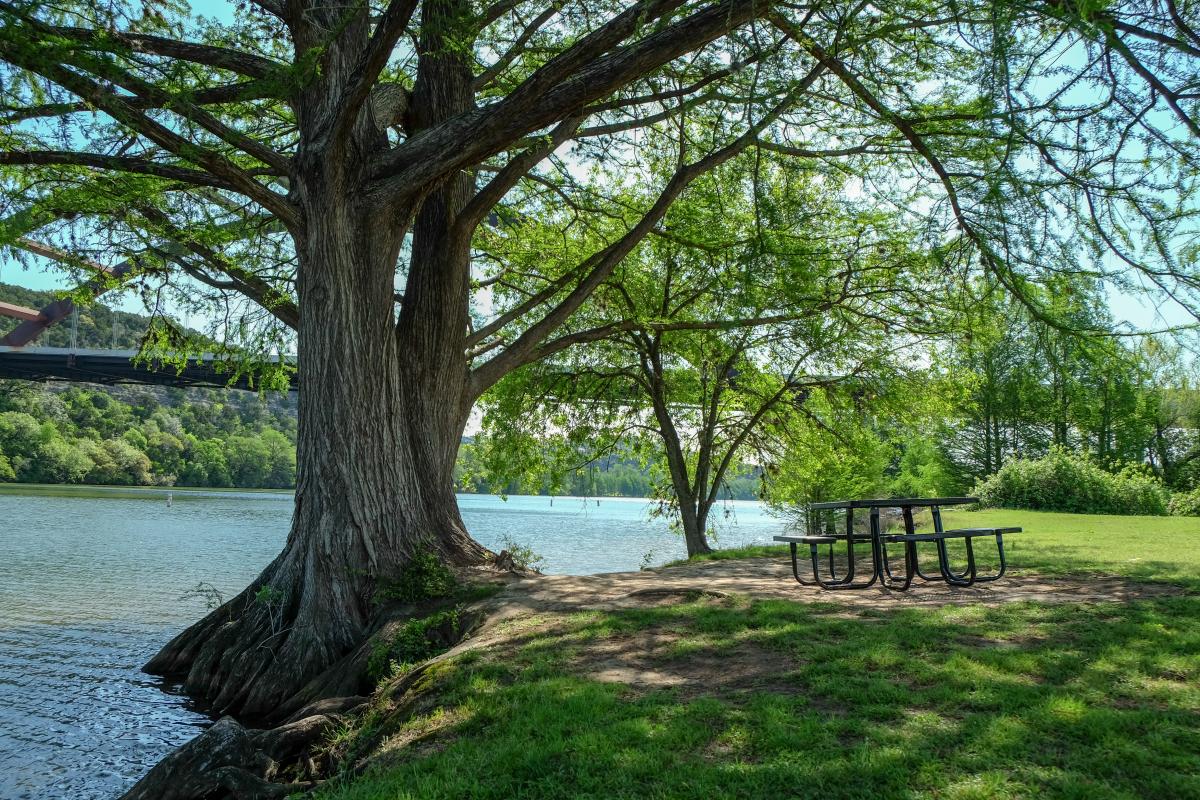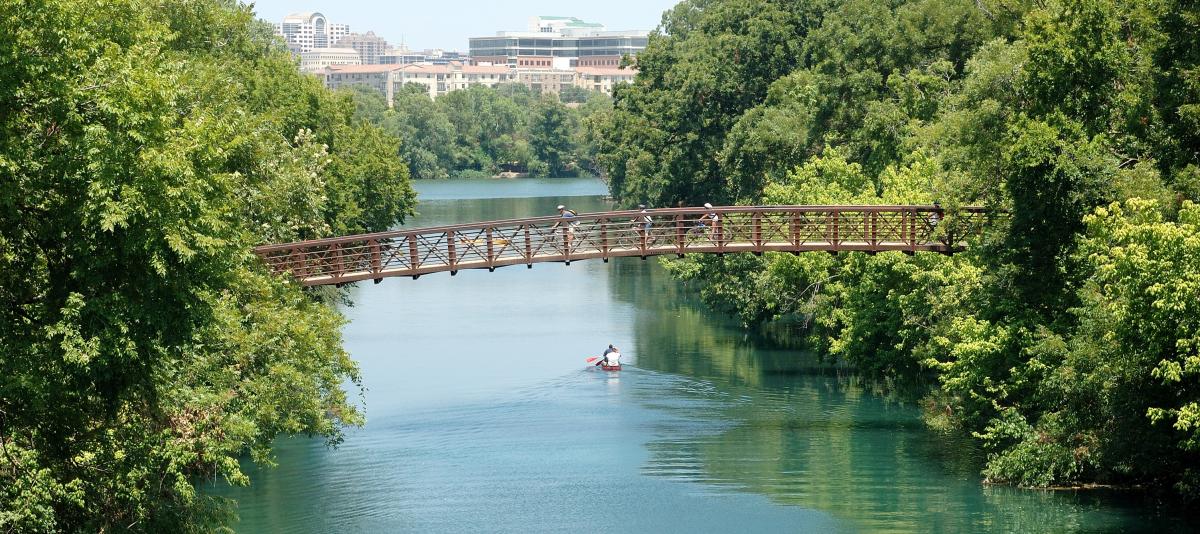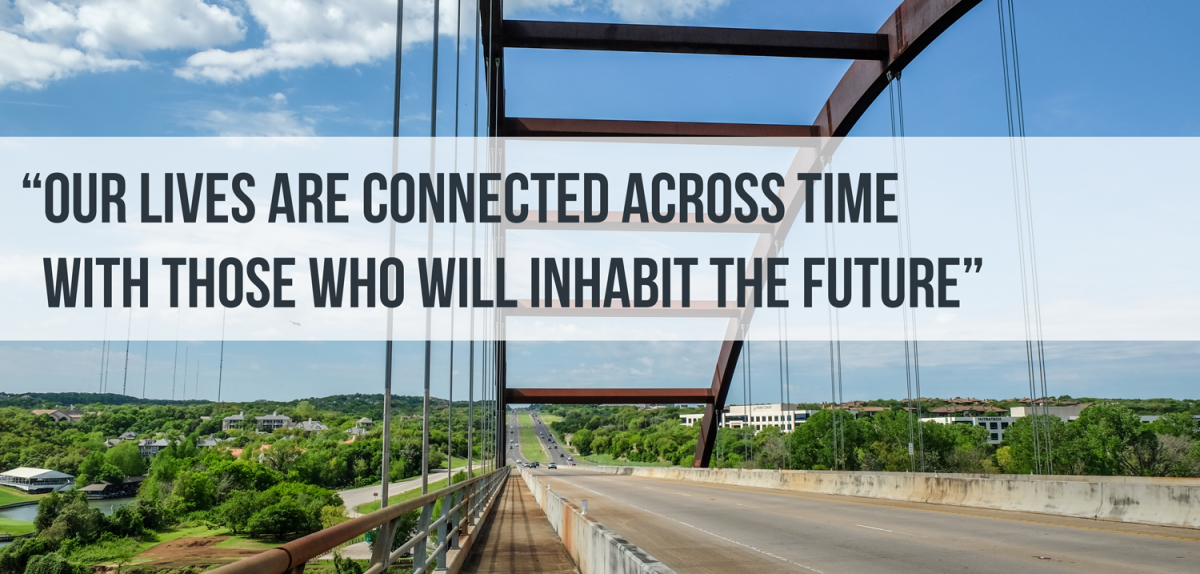Sponsored Post – from the City of Austin Office of Sustainability

Each April, the calendar reminds us that Earth Day is coming. But we all know that Earth Day is every day. We live on a precious planet where nature and all its gifts should be celebrated on a daily basis.
Viewed from a scientific perspective, the possibility of life on earth exists as a rare occurrence of conditions referred to as the “Goldilocks Zone.” This means that our planet falls within the slender range of the Sun’s habitable zone, a narrow ribbon of conditions that is neither too hot, nor too cold. Earth Day is a good reminder for us to remember this amazing reality, to slow down, to plant a garden, to gaze at the stars.
In the hustle bustle of the everyday, we may find it difficult to focus our minds beyond the next tweet or news report and the blaring media messages telling us to go shopping. There is good reason to slow down to drink in nature. Renowned biologist Edward O. Wilson coined the concept of “biophilia,” which refers to an instinctive bond between humans and nature, an innate affiliation with all living things.

According to a recent Terrapin Bright Green publication, biophilia “helps explain why crackling fires and crashing waves captivate us; why a view to nature can enhance our creativity; why shadows and heights instill fascination and fear; and why gardening and strolling through a park have restorative healing effects. Biophilic elements have demonstrably real, measurable benefits for human performance metrics such as productivity, emotional well-being, stress, learning and creativity… Implementing biophilic design into our workplaces, healthcare facilities, schools and neighborhoods has profound health and economic benefits.”

We live in the Anthropocene, or human, era, which until relatively recently was characterized by a struggle for survival among the elements. More recently, our experience is characterized by the industrial revolution with its associated burning of fossil fuels, technological innovations, and depletion of resources. Dramatic impacts resulting from the acceleration of human consumption and economic development since the 1950s is often referred to as the Great Acceleration. Rampant capitalism driven by short-term gain has created massive resource depletion, species collapse and planetary disruption. A recent article in The Atlantic noted that the primary driver of planetary change was once considered to be geologic forces; today it is human activity. Shockingly, this acceleration has happened within a single human lifetime and society is struggling to adjust to so many changes so fast.
Connecting with nature can be freeing. It can help to eliminate many distractions and give us permission to think bigger. When we remember that we exist within an eyeblink of deep time, we realize that our path is one of many steps in a long continuum. Even though we can’t and won’t be able to “do it all” or “save the world” with a single well-informed action, every action does count, especially when we remember that our lives are connected across time with those who will inhabit the future.

So get outside today and drink in nature’s peace and inspiration. Let its natural beauty and wisdom flow through you, because you are a child of nature, connected across millennia with your ancestors and the descendants who will follow you on this path. And that is something we can be amazed by on Earth Day and every day.
Please note – editorials and sponsored posts are written by guest writers to inform and educate the community on a variety of different viewpoints, as well as to share information about local eco-friendly businesses and organizations. However, they do not necessarily reflect the opinions of the Austin EcoNetwork.

